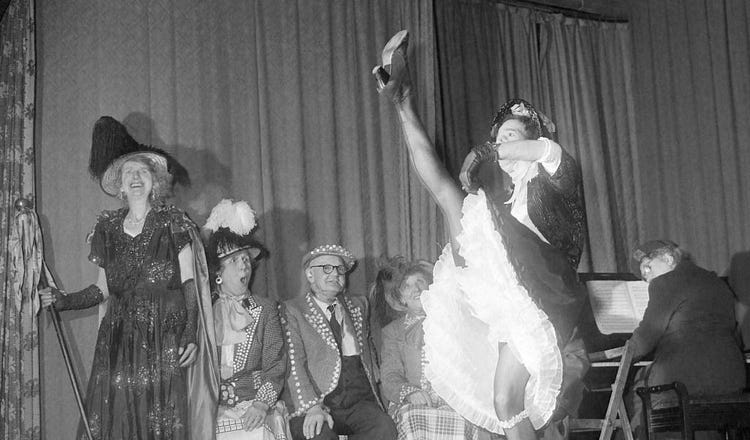
Welcome back to Douglas Murray’s Sunday column, Things Worth Remembering, where he presents passages from great poets he has committed to memory—and explains why you should, too. To listen to Douglas read Jenny Joseph’s poem “Warning,” click below:
Some poems are so popular people are embarrassed to say they like them. Rudyard Kipling’s “If” is one example. I must admit I think slightly less of anyone who tells me that poem is their favorite.
Jenny Joseph’s poem “Warning” falls into this category. It’s extremely popular, loved especially by people who do not otherwise read poetry.
But it is a wonderful work.
Jenny Joseph is not a famous name. And it is said that she had a difficult relationship with her famous work.
Born in 1932, Joseph wrote and published the poem when she was just 28. But it lay dormant for almost a quarter of a century. Then, British poet Philip Larkin included it in his 1973 Oxford Book of Twentieth Century English Verse. Following that, Liz Carpenter, the spokeswoman for former First Lady Lady Bird Johnson, wrote a piece in Reader’s Digest in the early 1980s that included “Warning”—and it blew up.
The poem soon found its way onto tea towels, greeting cards, and kitchen magnets. But Joseph’s major hit overwhelmed the rest of her career. And apparently, she was a little resentful of that fact.
Most interesting is not how this poem caught on—but why.


